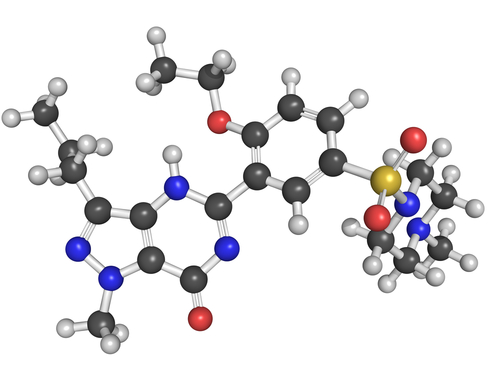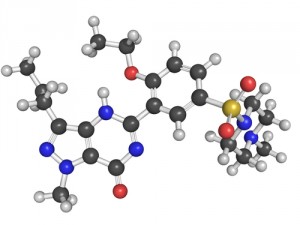Bayer’s Riociguat Experimental Therapy For PAH May Provide An Alternative To Sildenafil
Written by |

 It was reported last month that the drug Sildenafil, popularly known as “Viagra,” an erectile dysfunction therapy for men, also revealed efficacy in treating those with pulmonary hypertension. However, for those with the disease who did not respond to sildenafil, a new, alliterative therapy may show promise, specifically for PAH sufferers.
It was reported last month that the drug Sildenafil, popularly known as “Viagra,” an erectile dysfunction therapy for men, also revealed efficacy in treating those with pulmonary hypertension. However, for those with the disease who did not respond to sildenafil, a new, alliterative therapy may show promise, specifically for PAH sufferers.
Bay63-2521 (riociguat, a guanlyate cyclase stimulator) has the ability to relax muscle cells in organs and blood vessels and in particular lung blood vessels. It is believed that the therapy may inhibit abnormal reorganization of smaller lung blood vessels as well. Riociguat has been demonstrated to reduce pulmonary blood pressure in patients with pulmonary hypertension without unacceptable side effects.
[adrotate group=”4″]
Bayer HealthCare has announced enrollment of the first patient in an open label, multi-center, multinational Phase 3b pilot study examining the effects of riociguat in individuals with pulmonary arterial hypertension (PAH) who have insufficient response to therapy with phosphodiesterase-5 inhibitors (PDE-5i). This RESPITE study will assess riociguat in patients either as a monotherapy or combined with an endothelin receptor antagonist (ERA).
Sixty patients with PAH who have received at least 3 months of prior therapy with sildenafil (Viagra/Revatio, Pfizer) or tadalafil (Cialis, Lilly) that did not present with sufficient clinical responsiveness to PDE5 therapy will be included in the Phase 3b trial. Patients will be administered 24 weeks of riociguat after a washout period. Assessed outcomes include; improvements in the 6-minute walk distance, cardiac index, quality of life, WHO functional class (the way of classifying the extent of heart failure) and nitric oxide biomarkers.
[adrotate group=”3″]
According to Marius MN. Hoeper, MD, from Hannover University Medical School in Germany, “In many guidelines and for many regulatory bodies worldwide, PDE5 inhibitors are currently an established therapy for patients with PAH in WHO functional class II and III, and for many patients they are a well-tolerated and effective treatment option. However, there is still a substantial number of PAH patients who do not reach treatment goals while receiving PDE5 inhibitors. The RESPITE study is designed as a first step to provide important data on the clinical effects of riociguat in this particular patient population.”
Riociguat has previously demonstrated efficacy in several clinical outcomes for PAH patients used alone or in combination with prostacyclin analogue or endothelin receptor antagonist treatments. In the U.S., riociguat was approved to treat chronic thromboembolic pulmonary hypertension and PAH in late 2013. However, it is reported that the combination of PDE5 inhibitors and riociguat in some patients is contraindicated as this combination can have negative side effects on blood pressure.



